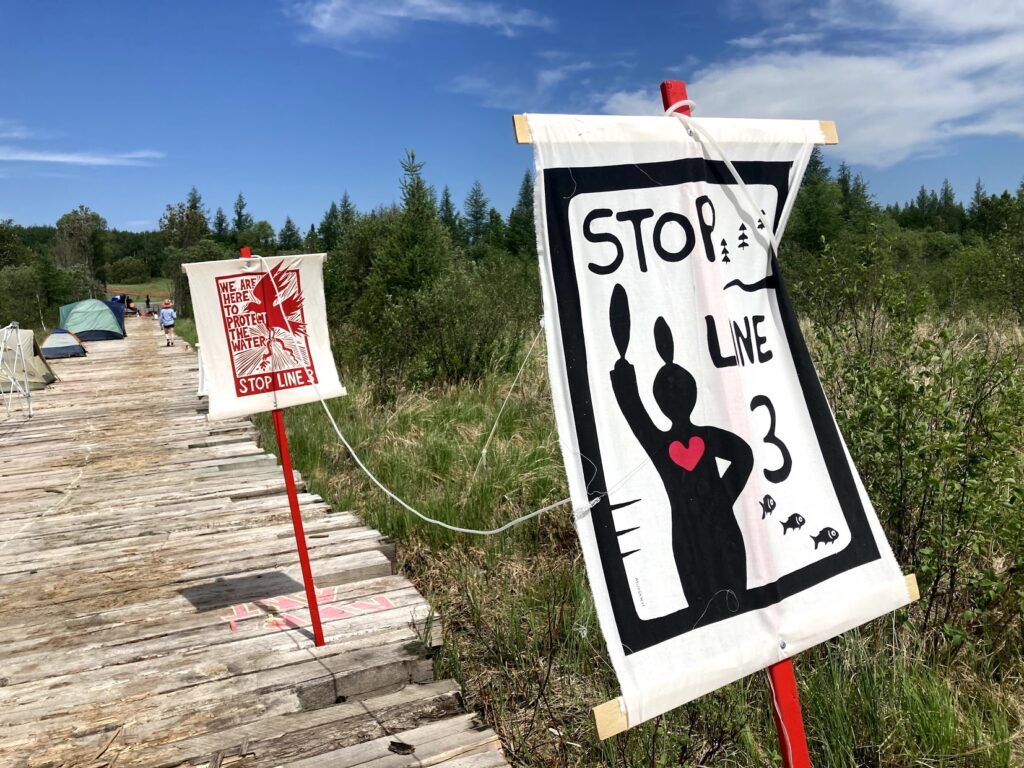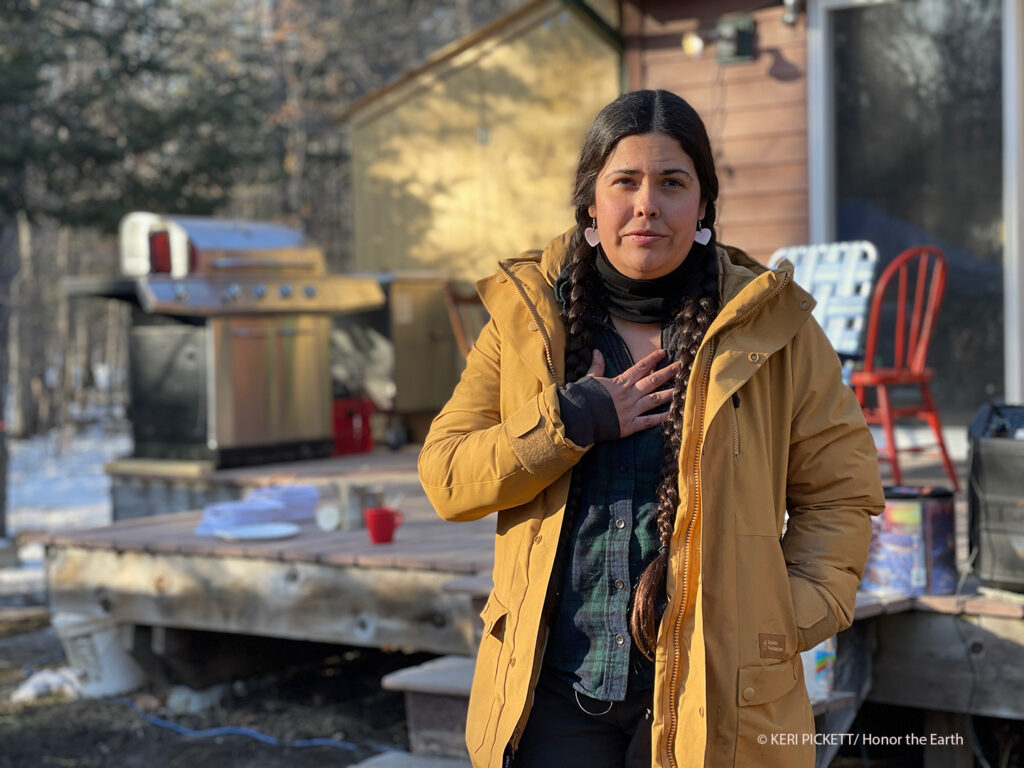Anishinaabe peoples started campaigning against Line 3 more than seven years ago. When construction started in 2017, they took their campaign to the lands, setting up the first camps along the route. Indigenous water protectors and non-Indigenous allies joined the camps to demand the end of the project and the respect of Indigenous rights. Because of their opposition to Line 3, water protectors have been heavily repressed, harassed, and criminalized.
The impact of Line 3 on the climate and the violations of Indigenous communities’ rights associated with the construction of the project are incompatible with the ambitious action needed to avoid the worst impacts of the climate crisis.
As part of our Frontlines of Climate Justice campaign, this case study shares information, stories, and insights about the fight to stop Line 3.

- 760,000 barrels of tar sands crude oil per day.
- Equivalent to 50 new coal-powered plants.
- Over 1,000 water protectors arrested and criminalized for non-violent direct action.
- Enbridge reimbursed $8.6 million to the Minnesota police through a “Public Safety Escrow Trust.”

“Our police are beholden to a foreign company. They are working hand-in-hand with Big Oil. They are actively working for a company. Their duty is owed to the state of Minnesota and the tribal citizens of Minnesota.”
-Tara Houska, Water Protector, Founder of Giniw Collective





